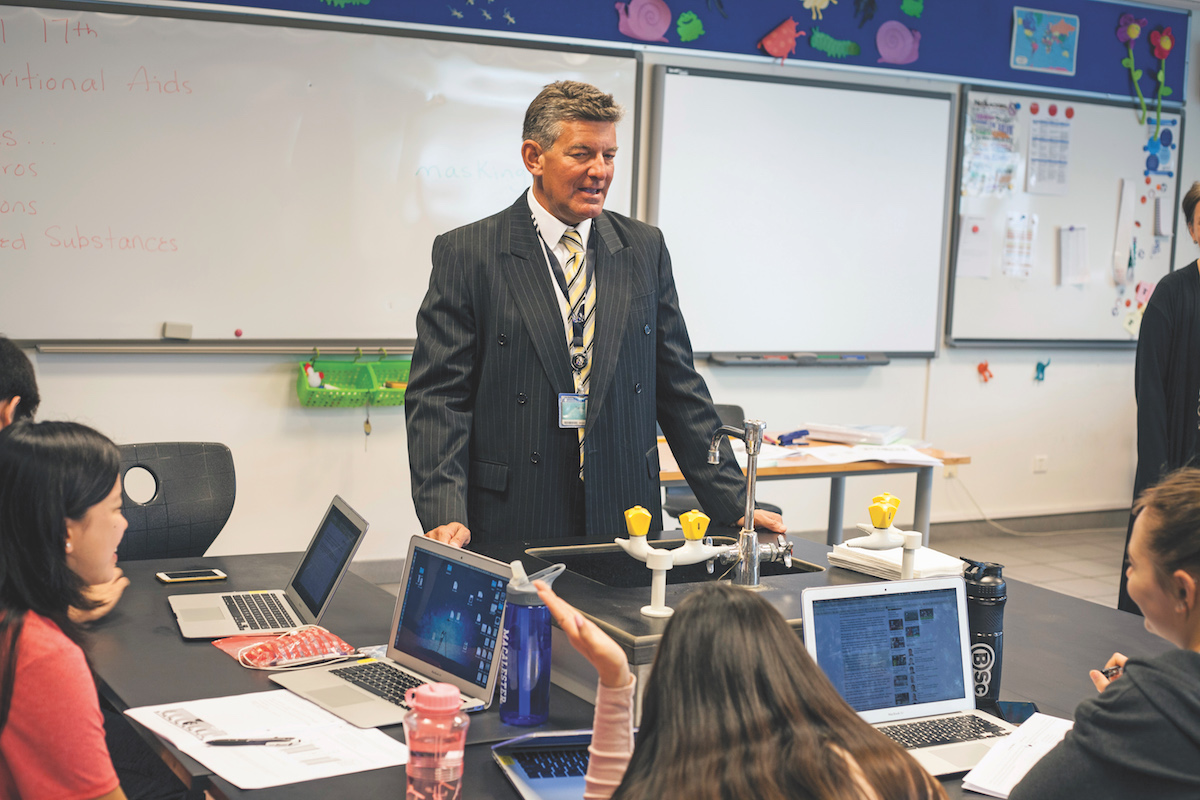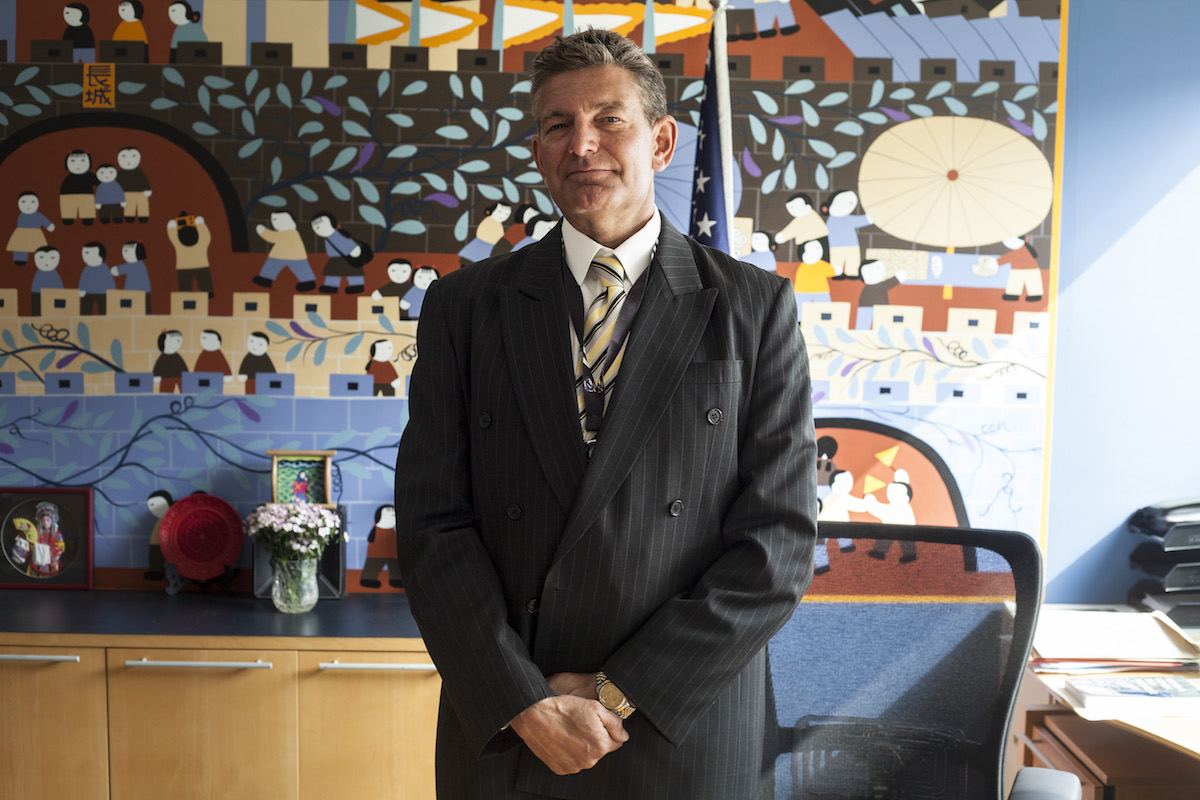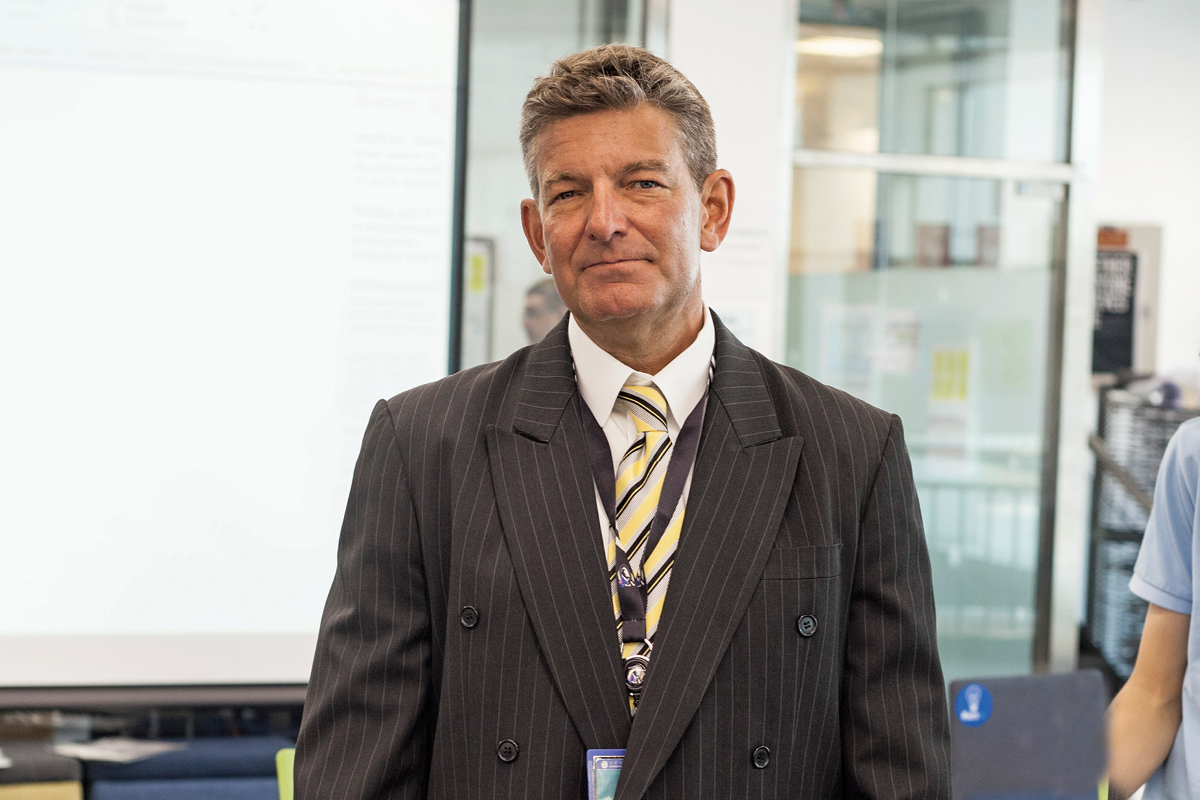As the 2016-17 academic year draws to a close, so does another chapter in the career of Dr Tarek Razik. After seven years as Head of School at the International School of Beijing (ISB), the time has come for a fresh challenge as the words of his father echo in his ears. “Things are going really, really well here and, as my father used to tell me, ‘Leave when the party is good; don’t stay too long’,” he laughs. But this American abroad is not ready to return home to Maine just yet.
“I remember telling my parents when I was getting ready to move to my first school in Jamaica that I wanted to try this international school thing for a year or two, and then I’d be back,” he says. That was 30 years ago. Puerto Rico, the US Virgin Islands, Japan, Germany, Thailand and China have all been home; and even as he’s transitioned into a leadership capacity, he still makes it a priority to teach Middle School Asian Studies at ISB. “My wife and I definitely feel like we have one more adventure left in us before the kids graduate high school,” he says, revealing that Indonesia’s Jakarta Intercultural School is his next destination.
Dr Tarek Razik on blasting ISB into the 21st century
As Tarek moves south, closer to Australia and his beloved Collingwood Football Club (a passion passed on to him by the die-hard Aussie AFL fans he has had on his teaching staff), he reflects on all he has achieved in Beijing.
Although he’s quick to deflect much of the accolades to his team – his leadership philosophy is “to hire people smarter than me, trust them, and let them do their job” – Tarek is a highly respected figure in the region. He is recognised for the groundbreaking initiatives he has introduced as he “blasted ISB into the twenty-first century,” as he phrases it.

I think the real opportunity for me was to get the kids out of the classroom and really engage them in real-world problem-solving.
In moving to ISB, Tarek inherited the reigns of a school that was highly regarded, yet traditional. “The children were in their seats, the teachers were delivering lectures, [and] the test results were high.
“I think the real opportunity for me was to get the kids out of the classroom and really engage them in real-world problem-solving,” he explains. With the support of the school board, he has completely transformed the educational experience at ISB’s campus. The school calls it ‘project-based learning’, and while the standards and the curriculum haven’t changed, the delivery of the lessons has.
“It’s about designing opportunities around students’ passions and getting the same, if not better, results because you are developing a different skill set as opposed to taking a test and then regurgitating the information.”
International School of Beijing pioneers project-based learning
The first project-based learning platform, called Futures Academy, was introduced three years ago with seventh graders. Although it was a voluntary program, the inaugural intake of 24 students was higher than expected.
Today, four years into this approach to learning, these students are about to enter tenth grade, and more than 80 students in the grades below them have also commenced the course. “The idea is that the teacher becomes the facilitator, and weaves the standards and benchmarks for that grade level into each project,” he says.

The current crop of would-be entrepreneurs is drawing inspiration from such fields as environmental science, fashion and even space as they bring their individual projects to life. Tarek admits it has taken a lot of work with both parents and teachers, but the result from the students speaks volumes.
“When your child is excited to go to school and comes home with an energy about learning, when they can demonstrate why what they are doing is relevant to the outside world, then you know that what you are doing is working.” It also adds depth to the all-important university application.
“All of our kids finish school with good grades, good exam results, play a sport, play a musical instrument, and do some community service. But that is the profile of every smart kid around the world,” he says. “Where is the depth? This is the differentiation that we are hoping to add.”
Leaving a lasting legacy in education
Classrooms as we know them have also become obsolete. “We’ve definitely knocked some walls down,” he laughs. “It’s called visible thinking. We want learning to be transparent, so we’ve introduced whiteboard tables that you can write on and then flip them around. Everything is now portable, which means you can really think differently and arrange kids differently. In our classrooms, you don’t necessarily feel like you are in school.”
When pressed, however, Tarek admits that there is one highlight that stands out from his time at ISB. “Monitoring air quality is obviously a big priority here,” he explains, “and when the air quality goes above a certain level, we can’t allow the kids outside to play. In my first year here, there were 34 of those days. That’s not good for the kids, or the teachers.”
Education is a challenging career because we are shaping the future of the children we teach. But it also should be fun.
After a quick trip back to America, he returned with an inspired idea. “I had seen some domes in New Hampshire, and fortunately the board agreed with my suggestion to construct two pressurised domes for the children to play in during days of heavy smog,” he says. Reported to have cost close to US$5 million, the Teflon-plated domes were the first to appear in Beijing’s playgrounds and set a standard that other schools in the city have scrambled to follow.
As Tarek farewells ISB, he leaves a lasting footprint of his passion for the profession. “Education is a challenging career because we are shaping the future of the children we teach,” he says. “But it also should be fun. I think that when that stops, I will need to look for something else to do.” Judging by his decision to move to Indonesia, there’s no chance of that happening any time soon.

